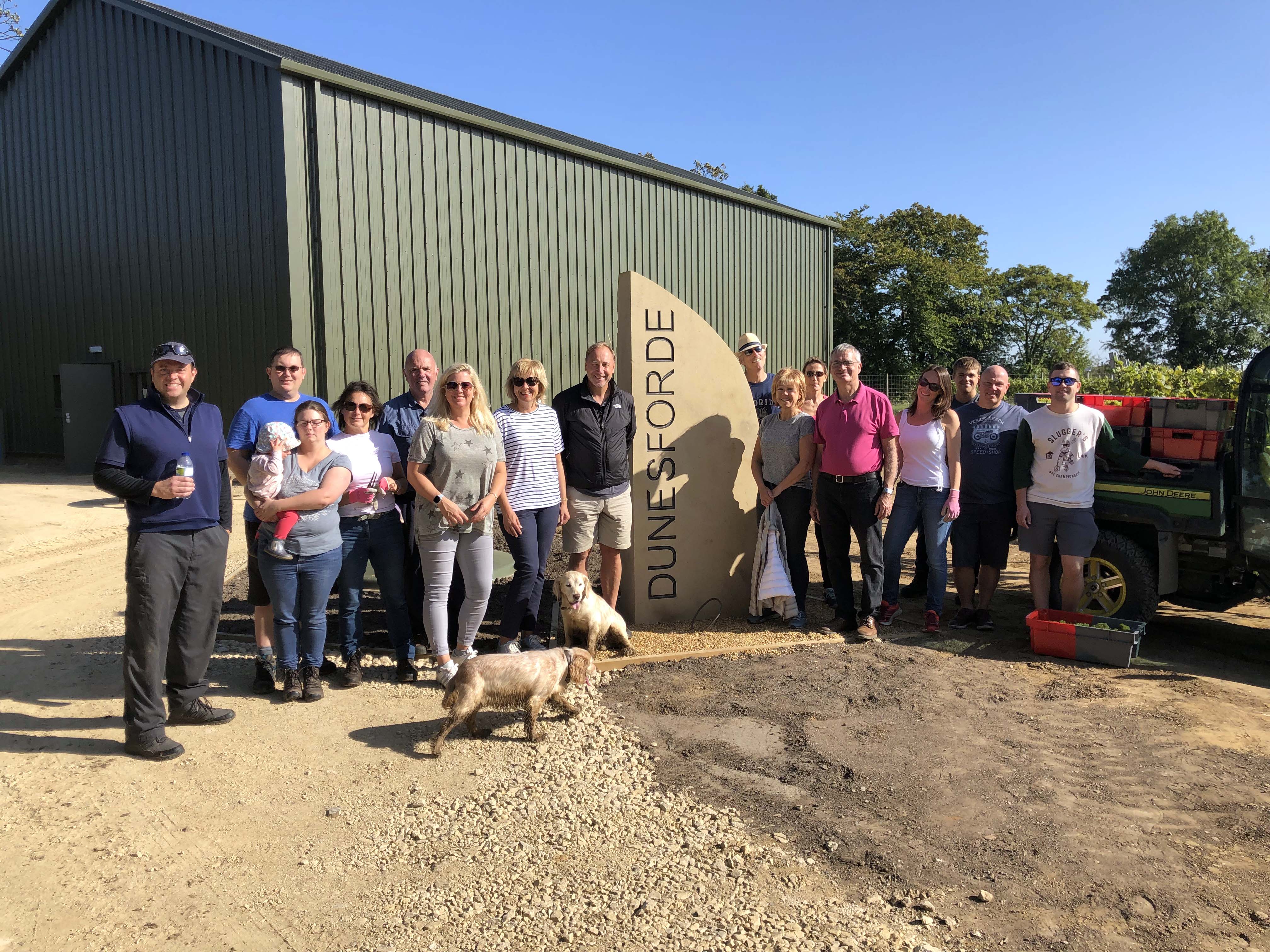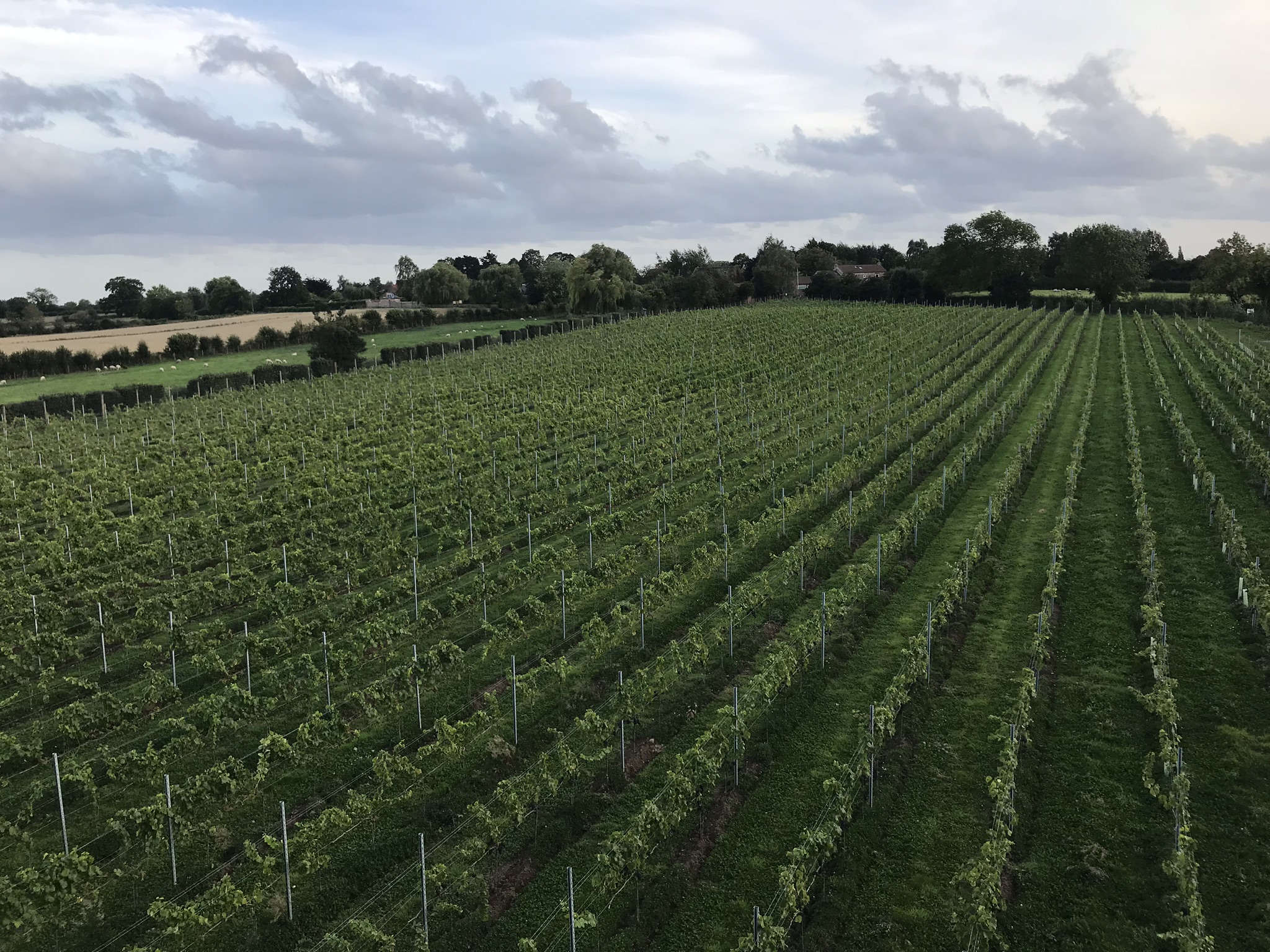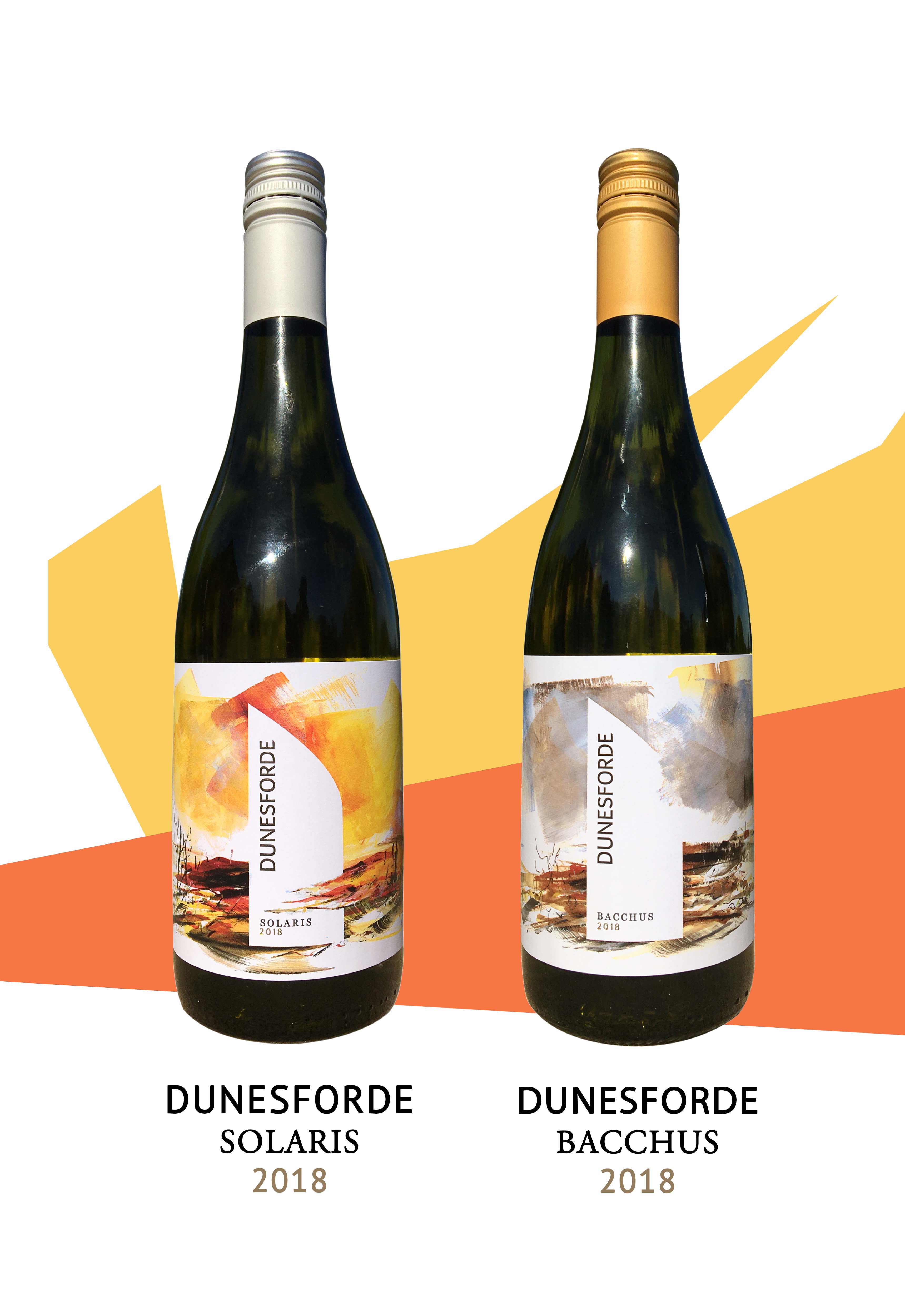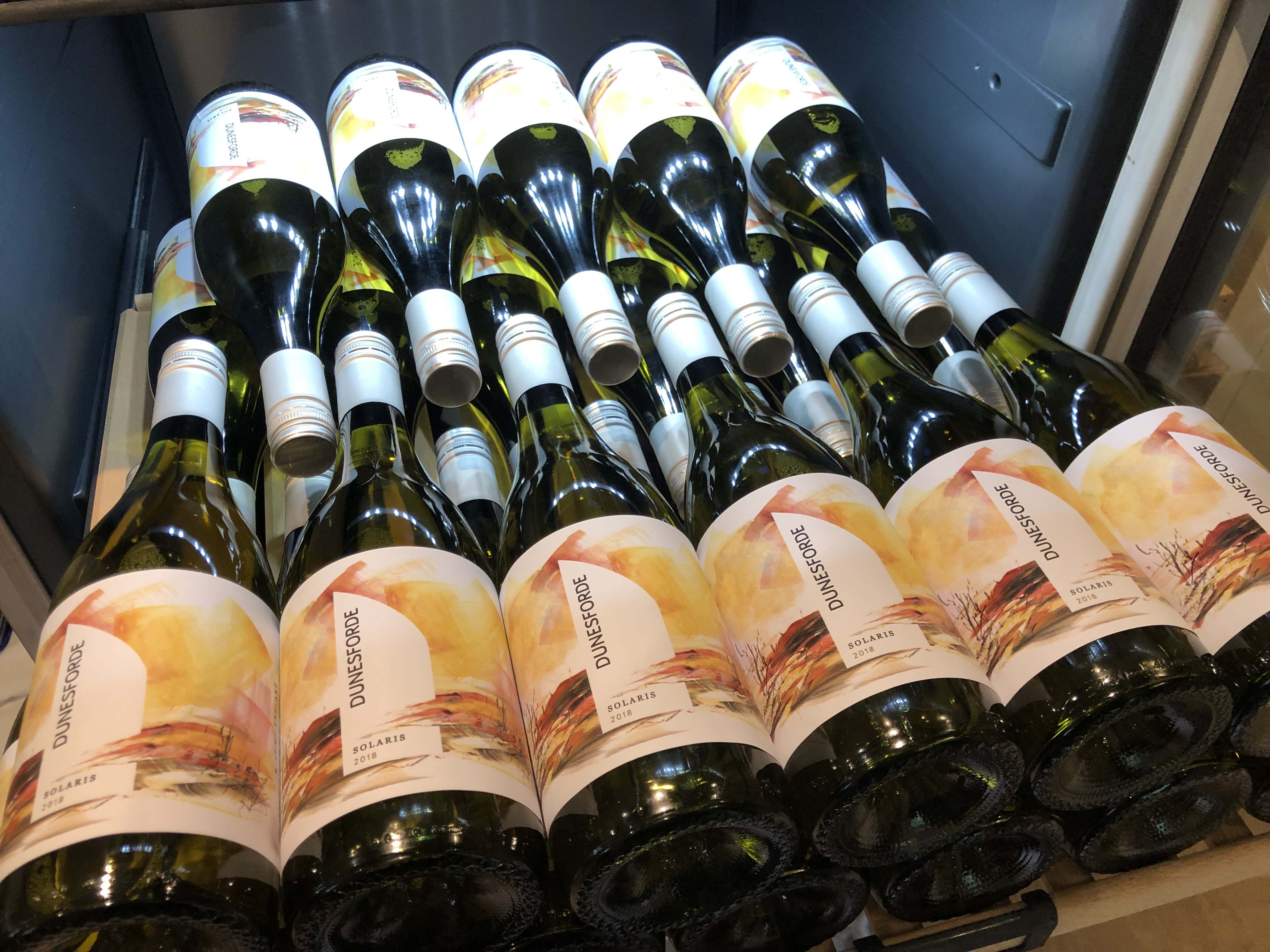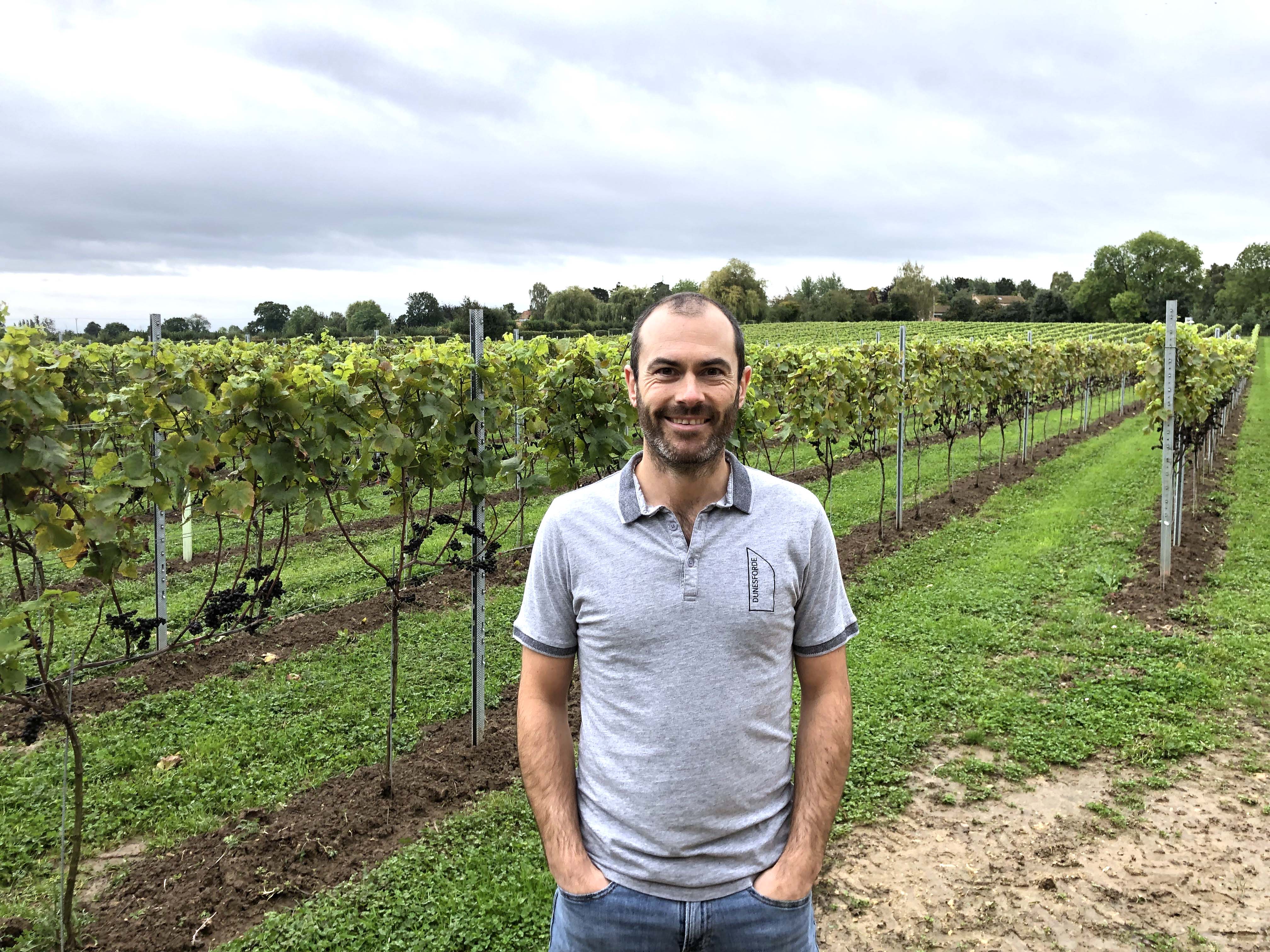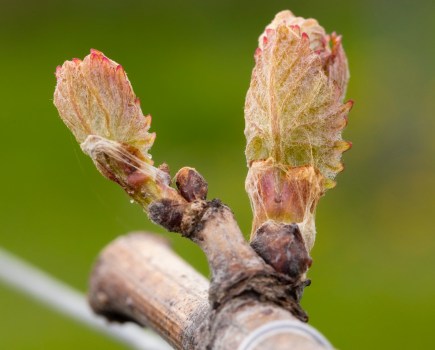James Townsend at Dunesforde Vineyard in Upper Dunsforth, York, talks to Vineyard about what it’s like to grow grapes up North.
How did you end up planting a vineyard in Yorkshire?
Initially we started our search for a vineyard in Italy. I had gone to university there for a year, worked a couple of harvests in Tuscany and loved the culture, the food and the wine. When land became available in the village our family had lived in for thirty years, it seemed like a great opportunity to do something unique and different.
Tell us about your terroir…
Our 4-acre vineyard is planted on a gently sloping site in the Vale of York on sandy clay soil with Bacchus, Pinot gris, Pinot noir précoce and Solaris. Rows are planted north-south with the highest point being just 15m above sea level. We benefit from shelter from mature trees to the south west and we are normally a degree or two warmer than nearby York and Harrogate. People might think of Yorkshire as cold and wet, but being in the rain shadow of the Pennines, we’re actually prone to droughts in the summer and get some really warm spells.
How is harvest 2019 shaping up in terms of quantity and quality?
2019 will only be our second harvesting year. We’ve got more fruit than last year, but the wet weather has led to a few problems with both powdery and downy mildew. The Solaris is looking great though, as is the Pinot noir précoce that hasn’t been hit by mildew.
Was there one key aspect of the 2019 season which you will never forget?
All the rain! The conditions this summer have meant keeping on top of growth in the canopy has been a challenge. We’ve repeatedly had to pass through the vineyard trimming, removing side shoots and de-leafing. A stark contrast to 2018 where, thanks to the lack of rain, we were able to do each of these jobs in just one pass.
What is the biggest viticultural challenge of being located so far north?
The weather! April and May are always nervy times of year when we’re at risk from spring frosts. We use a variety of passive methods to protect ourselves as much as we can – late pruning, leaving sacrificial canes, tying down as late as possible – and this year we also experimented using sprays when frost risk was high. Ripening fruit and getting the right balance between sugars and acids in the grapes is right up there as well, particularly with our later varieties like Pinot gris.
Name one interesting fact about Dunesforde that helps the brand stick in people’s minds.
The Dunesforde logo is actually an aerial view of the vineyard site. Ironically, when seen from above the field it is D-shaped. We like to call it the Dunesforde shard.
How would you describe the ethos of the estate?
We find it richly rewarding to share our passion and journey with others, this is at the heart of why we wanted to make wine in the first place. For us, wine is as much about the people as the place. We would not be able to give the vines the level of care and attention that we do without our team of volunteers. They are a big part of what makes our wine so special.
How do you get your wines to market?
We’ve only just released our first still wines, with our debut sparkling wines coming in 2020. With the limited production from our first harvest, we’re just selling from our website and the cellar door at events on the vineyard. In future though, we’re excited to get involved with some renowned local restaurants as well as setting up a members’ wine club.
Do you think producers need to offer more than just wine to be sustainable?
I think it’s all part of the business, especially as we are a relatively young industry and are still trying to promote ourselves.
Do you think it is going to become more challenging to stand out in a crowded market?
Being one of only a handful of vineyards this far north should help us stand out. English and Welsh wine is still not well known up here and people often don’t believe there are vineyards in Britain, let alone in North Yorkshire! People in our region are intrigued and love the idea of a locally grown wine.
How can producers ensure they are staying ahead of trends?
One of the best things about our industry at the moment is the ability to experiment and really try to find what works. We should be innovating as much as possible, while also maintaining the high-quality standards people expect.
Why do you think communities are so eager to get involved with their local vineyard(s)?
There’s just something magical about vineyards. They’re usually in beautiful places and seem to bring a sense of calm to people. We have volunteers from the village and wider community who come all year round to help at Dunesforde. I think the appeal is in the camaraderie and being a part of making something so connected to our environment.
If you weren’t working in viticulture what would you be doing?
I’d probably still be teaching, and the rest of the family would be working on their other business interests.
What is the best piece of vineyard machinery/equipment you have invested in and why?
Our Braun Rollhacke mechanical weeder that we got from NP Seymour has been an excellent investment – enabling us to manage the weeds under vine without relying on herbicides.
Is there anything on your ‘shopping list’ for next year?
A trimmer for the tractor. At the moment we use an electrical hedge trimmer to hedge the canopy, the batteries only last about an hour before needing to be charged, so it takes a long time. It’s also pretty hard work on the arms to get the top and sides done, especially in a warm and wet year like this year when we have to trim more often.
What do you think is the biggest issue facing the UK viticulture industry?
Carving out a niche in the crowded world wine market, especially given the high costs and low yields in the UK. Also, yield, reaching a wider audience and finding a place in the market.
What advice would you give to those looking to get into the UK viticulture industry?
Get as much right in site selection and planning as you can – making changes later is either very difficult and costly, or impossible. Reach out to experts for help and advice, we have such a helpful and welcoming industry.
Finish this sentence: In ten years’ time…
Dunesforde will be an established producer of outstanding cool climate wines.
